WHO Is Scrambling! New WHO Misinformation Programs Email Sent Days After WHO Executive Board Met Complaining About How "Misinformation About Treaty-IHR Sovereignty Is Derailing Their ONE Shot"
The COVID jab Never did what they said it was going to do. Why should we believe them now? Everyone else got paid except for the victims who are censored from speaking about their vaccine injuries!
Misinformation, Behavioral Science, Psychological Manipulation, Nudging, Coercion Threat and Other Illicit Means By The WHO and UN......
Is It To Try And Get Away With Crimes Against Humanity?
How is your vaccine “readiness” folks? WHO wants to know.
Behavioral scientists define pandemic preparedness not only in terms of illness detection, prevention, and response but also in terms of people's vaccination readiness (Bavel et al., 2020; Habersaat et al., 2020). A barrier to people's vaccination readiness is vaccination misinformation (Habersaat et al., 2020; Loomba et al., 2021). -
In line with the behavioral science perspective, leading global health authorities are currently planning to incorporate infodemic management into a global pandemic accord for pandemic preparedness (Taguchi et al., 2023). - WHO misinformation email
It’s the PERFECT time to forge forward and Sue The WHO for their fake covid-19 emergency declarations of a PHEIC and alleged global pandemic to terrorize, nudge, persecute and manipulate us into the non vax experiment on our DNA. The IoJ Attorney has been preparing the case and we thank EVERYONE who donates to ensure he is being paid his fees to get the work done. Time to reclaim our rights and world back.
New WHO Misinformation Programs Email:
WHO just sent us a new misinformation email so we are sharing it. If you want a job as a psycho tyrant that censors truth tellers, have a look at the bottom for Job Listings!
More psychological manipulation programs brought to you by the WHO and UN, relying on fatally flawed bad science while they try and tell everyone to listen to the science.
Lets face it, from what we know about their mutual confidentiality agreements, their precarious procurement processes and using a dysfunctional Emergency Use Listing programme (EUL) to put covid [non]vaccine shedding toxins on the global market, it’s clear that there is some cunning deceitfulness happening within the WHO-UN-WEF empire of lies being spread by bots and paid shills to “shape the global narrative”, to be perceived as favorable in regards to the COVID-19 non vaccines (biological agents).
What is the bigger agenda with all of this?
Health safety? Probably not….
We smell deception in the new WHO email… and desperation to silence us all.
Below is the WHO’s take on how to use behavioral science and use psychological manipulative tactics to persuade the masses that they should be taking their horrible product. Its a “vaccine uptake program” and UN-WHO-WEF, your State and Bill Gates pays for it to be used against us all!
Does this ever stop? It’s not looking so good on their part, yet they keep on going with the charade that people want their poison.
Do you really think people would take the jab after being told what it’s really for?
WATCH: SLIP OF THE TOUNGE BY PFIZER CEO, ALBERT BOURLA... "THESE WEAPONS"
What if we were told the truth of secondary effects over time which include death being the #6 most common adverse effect after 30 days, and 1.29% with adverse effects died according to FDA and CDC official data?
Or that it integrates into the DNA within hours according to the Florida Attorney General, a study from Sweden and a ton of experts?
Their tower of Babylon is crumbling and they know it! Manipulation is all they have.
Read the WHO’s extensive plans and censorship, spying, listening, nudging schemes:
Below is the propaganda the WHO is using against the population and youth for the benefit of the vaccine peddlers:
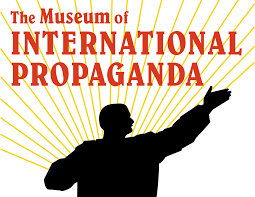
Using Behavioral Science for Infodemic Preparedness: The Case of Vaccination Misinformation
Philipp Schmid https://orcid.org/0000-0003-2966-0806 philipp.schmid@ru.nl
View all authors and affiliations
https://doi.org/10.1177/23727322231219684
Contents
Abstract
Health authorities aim to address misinformation within the framework of pandemic preparedness. Research reviewed here helps to contain vaccination misinformation: detect relevant parameters for an effective response, reduce individuals’ belief, and prevent its spread. The reviewed measures range from text-based campaign materials to real-time rebuttals of science deniers to empathy-based corrections in physician-patient conversations. The measures require knowledge of either the content of misinformation, the misleading tactics used by science deniers, or the psychological profiles of the recipients. Moreover, these measures require expertise from behavioral scientists and training for spokespersons and opinion leaders. Thus, policymakers can maintain an infrastructure for social listening, engage behavioral scientists in pandemic preparedness, and strengthen spokespersons and health care personnel before the next pandemic starts.
Social media: Infodemic management: Policymakers can prepare for the next pandemic by maintaining an infrastructure for social listening, engaging behavioral scientists in pandemic preparedness, and strengthening spokespersons and health care personnel.
Highlights
• Detecting tactics of deception and the content of misinformation and identifying underlying attitude roots and opinion leaders is key to an effective response to vaccination misinformation.
• Responding to infodemics with debunking, real-time rebuttal, and empathetic refutations is effective in reducing the detrimental effects of exposure to vaccination misinformation.
• Preventing the detrimental effects of vaccination misinformation is possible by implementing forewarnings and inoculation interventions.
• Detection, response, and prevention require maintaining an infrastructure for social listening coupled with the training of spokespersons and health care personnel.
Introduction
Humanity has experienced multiple pandemics with significant death tolls. There is little hope that this global health threat will diminish, as globalization and climate change are expected to accelerate the onset of the next pandemics (Antràs et al., 2023; De Oliveira & Tegally, 2023). As a response, the World Health Organization (WHO) urges countries to support pandemic preparedness plans that “help prevent, detect and respond rapidly to future pandemics” (WHO, 2021).
Behavioral scientists define pandemic preparedness not only in terms of illness detection, prevention, and response but also in terms of people's vaccination readiness (Bavel et al., 2020; Habersaat et al., 2020). A barrier to people's vaccination readiness is vaccination misinformation (Habersaat et al., 2020; Loomba et al., 2021). Vaccination misinformation is commonly defined as inaccurate or misleading information about vaccination (Schmid et al., 2023; Whitehead et al., 2023). Exposure to vaccination misinformation can impact individuals’ knowledge, emotions, attitudes, perceived norms, and behavioral intentions (Schmid et al., 2023). For example, experimental research revealed that exposure to vaccination conspiracy theories increased individuals’ anger (Featherstone & Zhang, 2020), decreased individuals’ positive attitudes toward vaccination (Chen et al., 2021), and decreased individuals’ intention to get vaccinated (Jolley & Douglas, 2014). Emotions, attitudes, and intentions are all considered important determinants of actual vaccine uptake (Schmid et al., 2023), which in turn is a lever to slow down epidemic processes (Wang et al., 2016). Given the potential relationship between misinformation and disease dynamics, the term infodemic is frequently used to describe the spread of misinformation during pandemics (Zarocostas, 2020). In line with the behavioral science perspective, leading global health authorities are currently planning to incorporate infodemic management into a global pandemic accord for pandemic preparedness (Taguchi et al., 2023).
This paper aims to facilitate the incorporation of infodemic management into a global pandemic accord for pandemic preparedness by reviewing behavioral science research on countering vaccination misinformation. Using the logic of pandemic preparedness plans as a framework, reviewed research helps to identify relevant parameters for an effective response to vaccination misinformation (i.e., detection), helps to reduce individuals’ belief in vaccination misinformation (i.e., response), and helps to prevent the spread of vaccination misinformation (i.e., prevention). The research findings on detection, response, and prevention can be applied at the policy level, and proposed resources provide policymakers with a starting point for developing infodemic preparedness plans that can complement pandemic preparedness.
Detecting Relevant Parameters
Detecting Tactics of Deception
Detecting relevant parameters for effective prevention and response to vaccination misinformation requires engaging in social listening. Social listening is defined as “monitoring the understanding, questions, concerns, information voids, narratives, misinformation, and disinformation that circulate in both web-based and offline environments” (Boender et al., 2023, p. 2). This includes collecting information on message features and the content of vaccination misinformation that spreads among target groups. For example, health misinformation is often categorized as highly emotional (Peng et al., 2023), and many prominent examples of health misinformation are based on conspiracy theories, fake experts, and logical fallacies (Schmid et al., 2023). Collecting these message features of upcoming vaccination misinformation during a pandemic can help design effective prevention (i.e., forewarnings, technique-based inoculation) and response measures (i.e., refutational rebuttal, debunking) that unmask the features for what they are—tactics of deception (Schmid et al., 2018). Several frameworks can guide the classification of deceptive tactics, from frameworks for general tactics of science denialism (Diethelm & McKee, 2008) to more domain-specific tactics of vaccine deniers (Kata, 2012).
Detecting Content and Attitude Roots
Detecting the misinformation's content is important because some prevention (i.e., issue-based inoculation) and response measures (i.e., non-refutational rebuttal, debunking) depend on checking the facts and correcting the content (Ecker et al., 2022). Moreover, spoken words and written text, for example, vaccination misinformation on social media, reflect the underlying values, personalities, and psychological needs of the sender. These so-called attitude roots (Hornsey & Fielding, 2017) are considered the fundamental psychological drivers of opposition to vaccination (Fasce et al., 2023). Presumably, the effectiveness of response measures for misinformed individuals can increase when they align rather than compete with individuals’ attitude roots (Hornsey & Fielding, 2017). This is in line with research on the effectiveness of tailoring health communication (Noar et al., 2009). Tailoring increases the personal relevance of health messages by acknowledging and addressing unique characteristics of the receiver that are related to the outcome of interest (Bol et al., 2020). It is a form of individualized communication that has also been suggested as a key element for infodemic management (Taguchi et al., 2023).

Following the terminology of tailoring, an attitude root is an individual's unique characteristic that is related to the belief in misinformation. Thus, detecting attitude roots is considered a starting point for tailoring response measures against misinformation (Holford et al., in press). Researchers have identified eleven attitude roots that underlie inaccurate or misleading arguments against vaccination (Fasce et al., 2023; Holford, Fasce, Costello et al., 2023). Among these attitude roots are conspiracist ideation (i.e., believing in conspiracies even if more plausible explanations exist), unwarranted beliefs (i.e., believing in pseudoscience conceptions), and religious concerns (i.e., believing that vaccination is against one's own religious or spiritual codex) (Fasce et al., 2023). A response measure that makes use of the concepts of attitude roots is the so-called empathetic refutational interview (ERI; Holford et al., in press).
It’s the PERFECT time to forge forward and Sue The WHO for their fake covid-19 emergency declarations of a PHEIC and alleged global pandemic. The IoJ Attorney has been preparing the case and we thank EVERYONE who donates to ensure he is being paid his fees to get the work done. Time to reclaim our rights and world back.
Detecting Opinion Leaders and Spokesperson
Tactic, content, and root detection usually require monitoring multiple data sources, from online social listening tools (e.g., epitweetr), to qualitative interviews and surveys among the public (Betsch et al., 2021; Boender et al., 2023; Hou et al., 2021). These sources also enable infodemic managers to detect opinion leaders, credible spokespersons for mass communication, and relevant media channels for target populations. Opinion leaders have been defined as “those individuals from whom others seek advice and information” (Rogers & Cartano, 1962, p. 435). Detecting opinion leaders is important to prevent them from misinforming others during a pandemic (Chia et al., 2023). In addition, opinion leaders can complement mass communication responses to misinformation because they “effectively communicate risk reduction strategies to their peers during everyday conversations and are able to establish momentum as a community social movement” (Quinn, 2020, p. 3291). The effectiveness of using opinion leaders in health promotion has been repeatedly demonstrated (Earp et al., 2002; Kelly et al., 1991). Opinion leaders can be chosen in a variety of ways, from self-nomination to hiring celebrities. Researchers have reported the advantages and disadvantages of each approach (Valente & Pumpuang, 2007).
When combating vaccination misinformation in the mass media, infodemic managers should consider using credible institutions or collectives as sources for key messages, rather than a single individual. This is because bad press for a single individual could threaten the public's trust in vaccination (Holford, Fasce, Tapper et al., 2023). In addition, the individual may experience high levels of emotional stress during the course of the pandemic (Nölleke et al., 2023) and is likely to become the target of aggressive vaccine deniers and even death threats—an experience shared by many researchers during the COVID-19 pandemic (Nogrady, 2021).
Detecting tactics and content of misinformation and identifying underlying attitude roots and opinion leaders can all be used to prepare response and prevention measures for an infodemic. The next two sections review research on response and prevention measures that make use of these relevant parameters.
Responding to Vaccination Misinformation
The Effectiveness of Debunking
One intuitive potential intervention to counter vaccination misinformation is the provision of corrections and scientific evidence (Ecker et al., 2022). However, according to research on motivated reasoning, individuals are sometimes motivated by how they want things to be rather than what the evidence says (Kunda, 1990). This goal-driven motivation is assumed to be specifically prevalent when given low incentive to engage in a search for accurate information (e.g., not feeling at risk of an infectious disease) and when the scientific evidence challenges the prior belief of the individual (e.g., vaccines are against God's will) (Bolsen & Druckman, 2015). In these cases, corrections may be ineffective, and in the worst case, they may even backfire.
Some empirical support for this and other forms of backfire effects was found for influenza vaccination and COVID-19 vaccination, at least in subgroups (Nyhan et al., 2014; Nyhan & Reifler, 2015; Pluviano et al., 2017, 2019; Schmid & Betsch, 2022). Four of these studies also influenced the authors of a systematic review to state that the evidence for the effectiveness of debunking to counter vaccination misinformation is rather mixed (Whitehead et al., 2023). However, a follow-up study failed to replicate a backfire effect (Haglin, 2017), and the generalizability of the findings of two studies that report a backfire effect (Pluviano et al., 2017, 2019) is limited due to very small sample sizes (N = 120; N = 60). In fact, large-sample studies (N ≈ 13.000) across several countries (N = 13) revealed that corrections of vaccination misinformation are effective during a pandemic and that there is little evidence of backfire (Bruns et al., 2023; Porter et al., 2023).
Studies that report a backfire effect and studies that find positive effects of debunking also differ regarding their comparison group. The goal of debunking during an infodemic is to mitigate the impact of misinformation. To test this mitigation effect, studies typically compare an experimental condition where participants only receive misinformation with a debunking condition where individuals receive misinformation followed by a correction. However, none of the studies that reported backfire effects included a misinformation-only condition but compared debunking against a neutral control or another type of intervention (Nyhan et al., 2014; Nyhan & Reifler, 2015; Pluviano et al., 2017, 2019; Schmid & Betsch, 2022). In these studies, the debunking is tested as a form of standalone intervention that could be prone to backfire or ineffectiveness because it may introduce novel misinformation that individuals have not experienced before (but see Prike et al., 2023). Studies that compared debunking with a misinformation-only condition and reported a damage of vaccination misinformation on outcome measures also reported a mitigation effect of debunking on these outcomes (Featherstone & Zhang, 2020; Porter et al., 2023; Schmid et al., 2020; Schmid & Betsch, 2019; Zhang et al., 2021). In sum, whenever individuals were exposed to impactful vaccination misinformation, debunking mitigated that impact—a pattern that may wear off over time but is robust across a wide array of countries and cultural contexts (Porter et al., 2023; Schmid & Betsch, 2019). The evidence in favor of debunking under these conditions is specifically useful for infodemics—a context in which debunkings are meant to be used as a response to the high exposure to impactful vaccination misinformation rather than a standalone intervention.
To increase the effectiveness of debunking, researchers recommend providing detailed corrections and alternative explanations to the misleading narratives (Prike et al., 2023). Detecting information about the content and misleading tactics of vaccination misinformation can act as a basis for developing these detailed corrections.
Real-Time Rebuttal
A specific context for applying debunking during an infodemic are public discussions with a science denier, for example, on social media, in televised debates, or during radio talk-shows. This form of debunking is often referred to as real-time rebuttal (Schmid & Betsch, 2019; van der Linden et al., 2020). Sophisticated rebuttal makes use of psychological research on refutational and non-refutational messaging (O’Keefe, 1999). Refutational rebuttal uncovers the weaknesses of a misleading message, while non-refutational rebuttal overwhelms a misleading message by providing strong support for the scientific perspective (Schmid & Betsch, 2019). For example, if someone states that “vaccines are unnatural and therefore bad,” then this misleading message can be rebutted by pointing out that it is based on a logical fallacy known as “appeal to nature” (i.e., refutational rebuttal), or one could list benefits for individual and public health that follow vaccination (i.e., non-refutational rebuttal). Experimental evaluations revealed that both approaches can mitigate the impact of misinformation about vaccination on audiences of public discussions (Schmid et al., 2020; Schmid & Betsch, 2019). Again, using rebuttal requires some information on the content (non-refutational rebuttal) or on misleading tactics (refutational rebuttal) of vaccination misinformation that can be detected via social listening.
Mass communication interventions such as debunking or rebuttal have several weaknesses. Tailoring usually requires fine-grained knowledge about the psychological characteristics of the audience (e.g., eleven attitude roots, moral values) in order to effectively tailor an intervention (Fasce et al., 2023; Lunz Trujillo et al., 2021). This is difficult in mass communication because most common mass media channels have very broad audiences. Moreover, mass communication interventions often leave little to no possibility of personally interacting with the sender of the intervention. The opportunity to ask questions and reframe arguments helps to clarify emerging counterarguments that otherwise remain a barrier to belief updating (Altay et al., 2022). Thus, the following paragraph introduces research on interpersonal communication interventions that can complement mass communication approaches during an infodemic.
It’s the PERFECT time to forge forward and Sue The WHO for their fake covid-19 emergency declarations of a PHEIC and alleged global pandemic. The IoJ Attorney has been preparing the case and we thank EVERYONE who donates to ensure he is being paid his fees to get the work done. Time to reclaim our rights and world back.
Empathetic Refutational Interviewing
Key opinion leaders in vaccination decision-making include health care professionals (HCP). Motivational interviewing (MI) is a well-established intervention to decrease vaccine hesitancy through conversations between patients and HCPs (Gagneur, 2020). MI aims to reinforce patients’ own commitment to behavior change by using empathy, signaling freedom of autonomy, and applying a non-judgmental attitude as key elements of a doctor's conversational style (Cogordan et al., 2023). This approach has been transformed into a conversational style named empathetic refutational interview (ERI) that specifically targets vaccination misinformation (Holford et al., in press). In contrast to rebuttal in mass communication contexts, ERI does not aim to overwhelm the arguments of other individuals (here: patients) with scientific evidence but focuses on understanding and valuing the concerns of the patient first. Similarly to MI, this is achieved by eliciting concerns with open questions and affirming the attitudes and beliefs of patients to the extent possible (Holford et al., in press). These expressions of empathy are used in the conversation to decrease the likelihood of patients’ reactance toward the key element of ERI, that is, tailored refutation of misinformation. Both the affirmation and the refutation of ERI are tailored toward the patient's concerns by addressing the patient's dominant attitude roots of believing in vaccination misinformation (Fasce et al., 2023). For example, if a patient refuses vaccination by stating that natural approaches are better than artificial vaccination (attitude root: unwarranted belief), the physician can show that she or he is not a threat to the patient's worldview by stating that modern medicine would not be the same without natural approaches (i.e., affirmation). Then, the physician can refute the patient's statement by listing the benefits of vaccination while emphasizing that all these benefits are in fact results of boosting natural immunity (i.e., refutation). Depending on the patient's dominant attitude root, the physician would affirm different beliefs (e.g., religion, fears) while correcting the patient's misperceptions. Experimental evidence revealed that using ERI can increase trust in HCPs and decrease support for anti-vaccination arguments (Holford et al., in press). The findings are in line with research that reported similar effects when tailoring vaccination messages to attitude roots such as religiosity or moral concerns (Chu et al., 2021; Lunz Trujillo et al., 2021). In terms of efficiency, it is useful to detect the most relevant attitude roots in a population during an infodemic and to assess which roots are specifically difficult to counter for HCPs (Holford, Schmid et al., 2023). This enables the provision of tailored training and guidance for HCPs.
Preventing the Impact of Vaccination Misinformation
The Use of Forewarnings
Behavioral scientists have studied psychological prevention measures that could help counter vaccination misinformation before people start believing it (Ecker et al., 2022). Warning individuals about vaccination misinformation or making them aware of misleading decision contexts that foster the belief in misinformation can reduce the negative impact of later exposure to misinformation (Schmid et al., 2020). For example, the voices of vaccine deniers and scientific experts are often presented in a balanced manner in media reports about the safety and effectiveness of recommended vaccines. This 50/50 presentation of positions can give the impression that the scientific evidence for and against vaccination is similarly distributed—a misperception known as the false balance effect (Dixon & Clarke, 2013). Warning individuals about the false balance effect prior to exposure to falsely balanced media formats can mitigate the negative impact of vaccination misinformation on attitudes toward vaccination and the intention to get vaccinated (Schmid et al., 2020).
Psychological Inoculation
More sophisticated psychological prevention measures against misinformation make use of the inoculation theory (McGuire, 1961; van der Linden et al., 2020). According to the theory, resistance against persuasive episodes can be increased if individuals are warned that they are the target of persuasion (i.e., threat induction) and if they are provided with convincing counterarguments against the persuasive message (i.e., refutational preemption). This is usually achieved by exposing individuals to a “weakened dose” of misinformation, followed by either an explanation of the scientific facts (i.e., issue-based inoculation) or by uncovering the misleading rhetorical tactics that are used by spreaders of misinformation (i.e., technique-based inoculation; Roozenbeek et al., 2022). Thus, when infodemic managers aim to design inoculation interventions, then the detection of content and misleading tactics of vaccination misinformation is useful.
Several studies compare inoculation interventions against impactful vaccination misinformation, revealing protective effects against the impact of misinformation (Bruns et al., 2023; Piltch-Loeb et al., 2022; Vivion et al., 2022; Wong, 2016). Among these studies are large-enough sample studies (N > 1000) that find the benefits of inoculation to be robust across countries (Bruns et al., 2023) and across variations of different types of inoculation interventions (Piltch-Loeb et al., 2022). The overall positive pattern is supported by a meta-analysis that revealed a benefit of using inoculation interventions to decrease health misinformation credibility assessments, as well as health-misinformation-sharing intentions (Lu et al., 2023). Some studies report only conditional effects of inoculation (Amazeen et al., 2022; Jiang et al., 2022; Schmid & Betsch, 2022). For example, in one study, the protective effect of inoculation was limited to reliability judgments of vaccination misinformation and did not cover damages to intentions to get vaccinated against COVID-19 (Schmid & Betsch, 2022).
Policy Implications
The protocol of the World Health Assembly Special Session in December 2021 states that participants convened to “draft and negotiate a WHO convention, agreement or other international instrument on pandemic prevention, preparedness and response” (World Health Organization, 2023, p. 1). The delegations from the participating WHO Member States drafted several potential objectives for this convention, agreement, or other international instrument, including to “combat the infodemic, and tackle false, misleading, misinformation or disinformation.” (World Health Organization, 2023, p. 28). Behavioral science offers a variety of insights and tools that can support the question of how to reach this objective.
It’s the PERFECT time to forge forward and Sue The WHO for their fake covid-19 emergency declarations of a PHEIC and alleged global pandemic. The IoJ Attorney has been preparing the case and we thank EVERYONE who donates to ensure he is being paid his fees to get the work done. Time to reclaim our rights and world back.
Building an Infrastructure for Social Listening
Research offers insights on what is needed to design communication-based response and prevention measures that can potentially combat vaccination misinformation during a pandemic. All communication approaches require some information about the misinformation (e.g., misleading tactics), the individual's psychological characteristics (e.g., attitude roots), or the social context of the individual (e.g., opinion leader). Thus, social listening and constant monitoring of misinformation and the public's beliefs and concerns are crucial for an infodemic response. Infodemic managers have several possibilities for gaining information about the public that are in line with research on social listening. For example, infodemic managers can implement constant survey monitoring of public beliefs and misconceptions. Monitorings like these were often started by single academic institutions or behavioral scientists during the COVID-19 pandemic (e.g., Betsch et al., 2021) but require financial and infrastructural support from policymakers to provide reliable data in the long term. For example, infodemic managers would benefit from existing infrastructure and financial support for building survey panels that can be used for social listening during infodemics. In line with the idea of pandemic preparedness plans (Holmberg & Lundgren, 2018), the infrastructure for social listening should be prepared during interpandemic phases, given limited time to deliberate on monitoring during a pandemic. Starting social listening before the next pandemic also enables infodemic managers to refine measurements to detect vaccination misinformation and misconceptions. This is critical to ensuring high data quality for issues related to misinformation, a prerequisite for an effective response that was repeatedly questioned during the COVID-19 pandemic (Sutton & Douglas, 2022).
Engaging Behavioral Scientists in the Campaign Design Process
Insights from social listening can help to design effective preventive measures and responses to vaccination misinformation, such as inoculation and debunking. Behavioral science offers a variety of interventions that make use of debunking as a tool to combat misinformation. For example, debunking texts and inoculation interventions can be disseminated online or as part of offline information campaigns. This requires policymakers to think beyond mere awareness campaigns, and engage behavioral scientists in the campaign design process, or consult evidence-based guidelines. For example, the Debunking Handbook offers hands-on guidance on how to design detailed debunking texts using behavioral insights (Lewandowsky et al., 2020). Based on this guidance, the Robert Koch-Institute in Germany created debunking texts on their web presence on vaccination misinformation (Robert Koch-Institut, 2023). To reduce the impact of false balance in media coverage during pandemics, falsely balanced formats can be restricted at a policy level. However, behavioral science also shows that non-restrictive measures such as warning and education about biased representations of scientific facts can at least mitigate the problem.
Strengthening Spokespersons and Health Care Personnel
Corrections can also be implemented as real-time responses in public discussions. This requires training spokespersons for health authorities or lay fact-checkers in effective rebuttal. Rebuttal requires more than is usually offered during media training. The World Health Organization offers guidance on how to rebut vaccination misinformation using refutational and non-refutational rebuttal approaches and how to train spokespersons to respond to challenging questions from vaccine deniers (WHO, 2016). Moreover, training HCPs on refutational approaches such as ERI can be another way of combating infodemics. In contrast to mass communication approaches, HCPs have the potential to “meet people where they are.” The EU Horizon project Jitsuvax offers a learning resource that explains ERI using word-by-word responses to over 60 anti-vaccination claims: www.jitsuvax.info. Policies can incentivize these trainings or adapt the curricula for medical and pharmacy students, as HCPs already have an immense workload during pandemics. In addition, creating opportunities for conversations about misconceptions between patients and HCPs through structured programs can facilitate their use. For example, as part of the Entretien Motivationnel en Maternité pour l’Immunisation des Enfants (EMMIE) program, motivational interviewing sessions with an immunization counselor were offered to new parents before leaving the hospital in Quebec (Gagneur, 2020).
Concluding Remarks
Text-based debunkings, real-time rebuttals of science deniers, empathy-based corrections in physician-patient conversation, forewarnings, and inoculation interventions are part of an infodemic manager's toolbox to counter vaccination misinformation. These tools are not competing with each other but serve as building blocks of an infodemic preparedness plan that aims to build resistance against misinformation in several different contexts. An infodemic preparedness plan can also include regulatory measures and infrastructure interventions that were not in the scope of this review. For the success of the non-regulatory measures reviewed here, it is essential to build and maintain an infrastructure for social listening, to engage behavioral scientists in pandemic preparedness, and to strengthen spokespersons and health care personnel.
Declaration of Conflicting Interests
The author(s) declared no potential conflicts of interest with respect to the research, authorship, and/or publication of this article.
Funding
The author(s) disclosed receipt of the following financial support for the research, authorship, and/or publication of this article: This work was supported by the H2020 Societal Challenges, (grant number JITSUVAX 964728).
It’s the PERFECT time to forge forward and Sue The WHO for their fake covid-19 emergency declarations of a PHEIC and alleged global pandemic. The IoJ Attorney has been preparing the case and we thank EVERYONE who donates to ensure he is being paid his fees to get the work done. Time to reclaim our rights and world back.
If you haven’t signed the petition to the HHS about the WHO pandemic agreement & IHR being void and unethical asking for a science hearing - please sign below!
Some people are not seeing the link to sign and we think you possibly need a different browser because the form is working. We are looking into why some people are not able to see the link. Thank you for signing to tell HHS to give us a hearing on why the Pandemic Treaty/Accord is a bad idea and why the US should exit the WHO
Link to sign the petition: https://whowatch.org/sign-to-protest-who-agendas
Link to sign the petition: https://whowatch.org/sign-to-protest-who-agendas

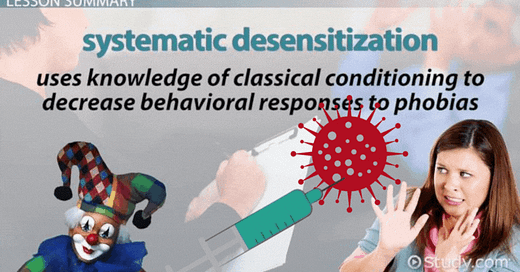



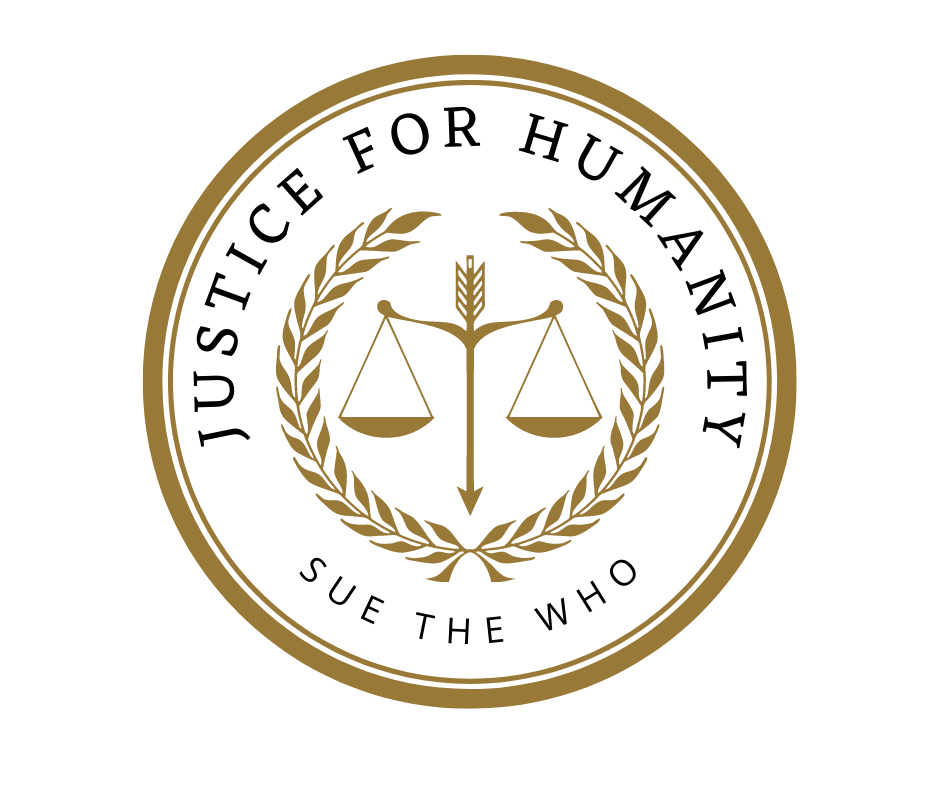

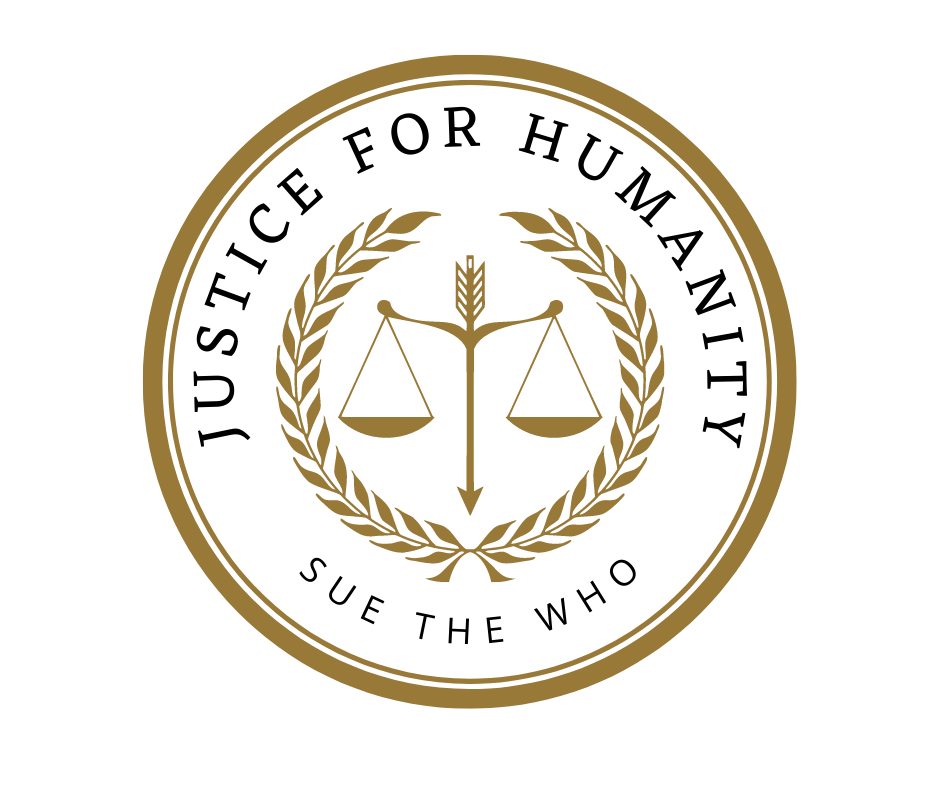
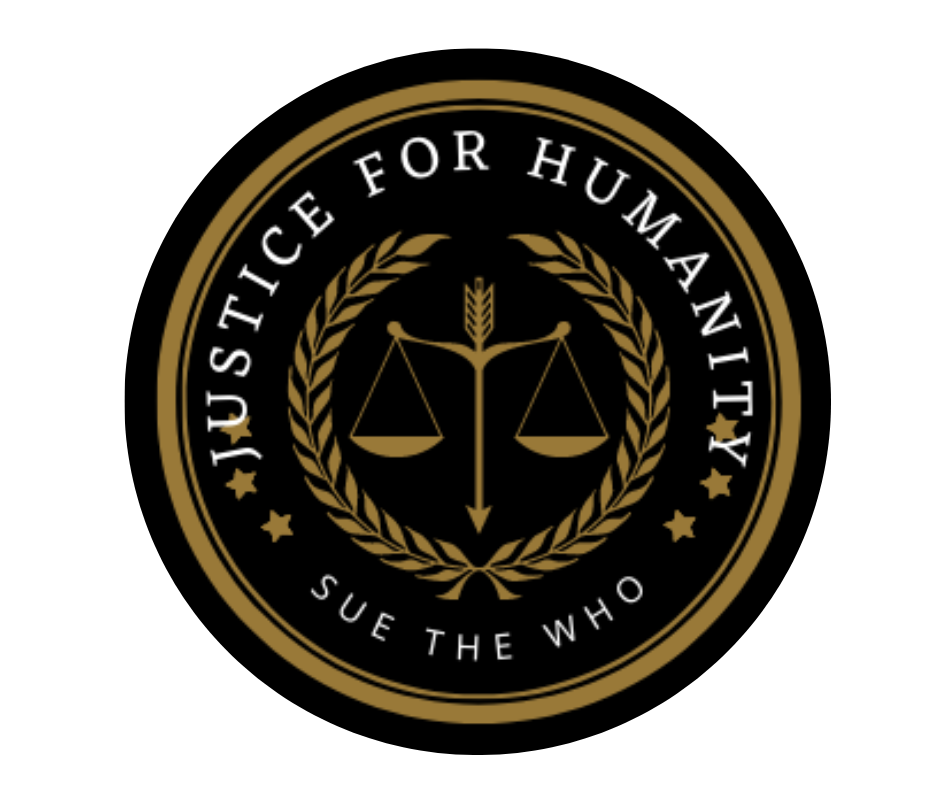

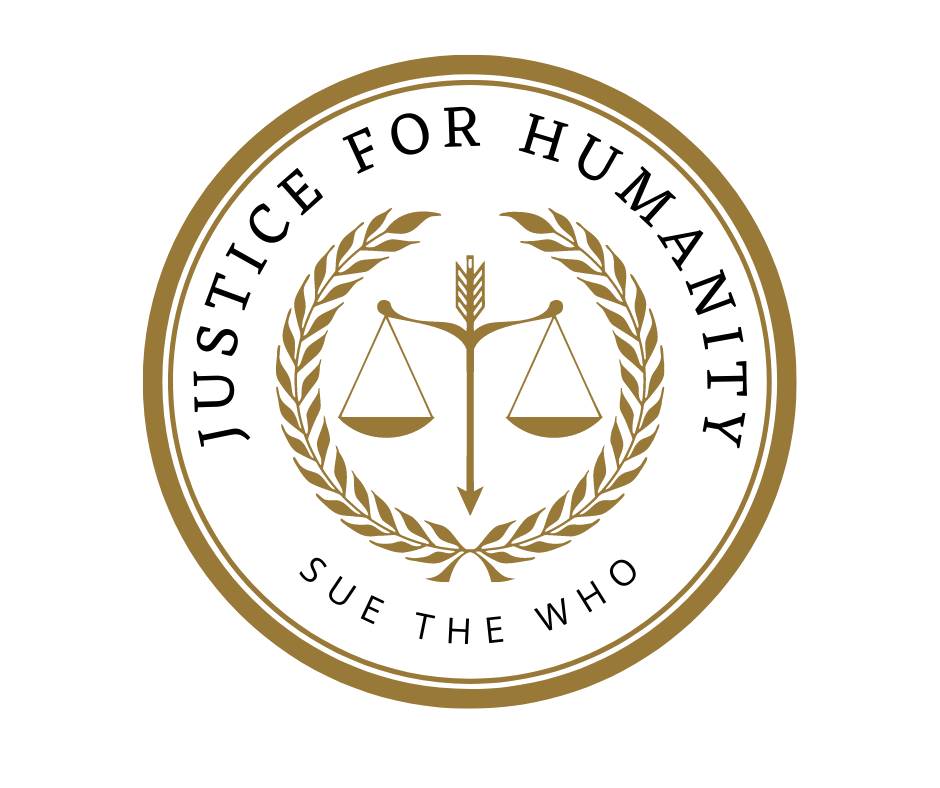


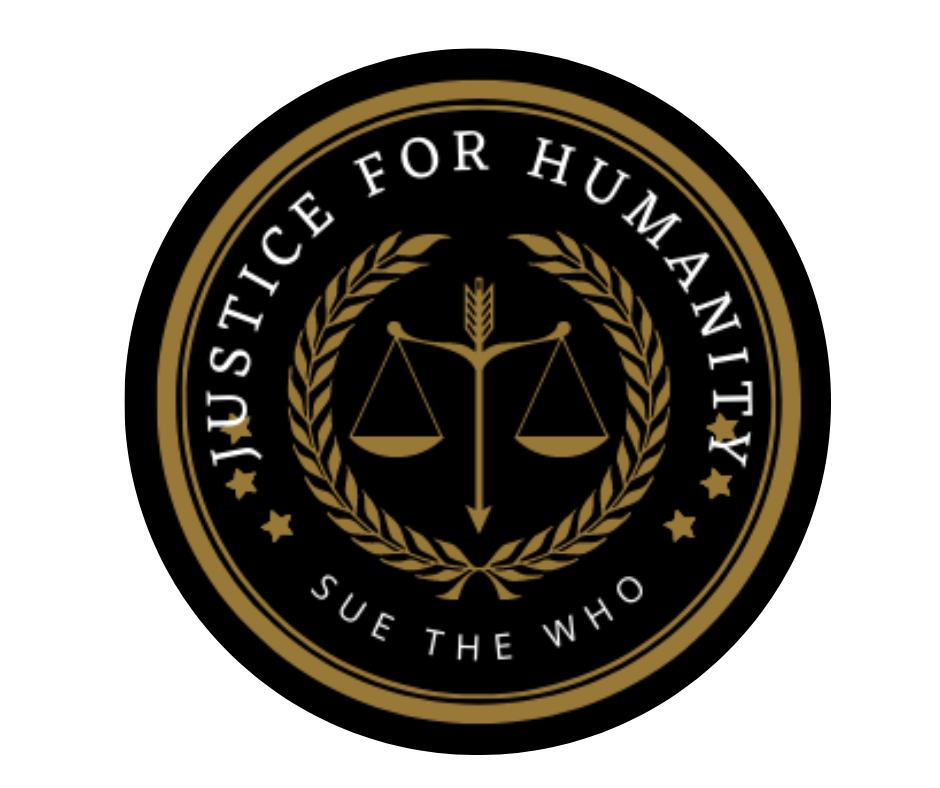

What's da plan, Pinky?
Trying to take over the world...........................
Plandemonium
Plandemonism
Plandemagoguing
Plandelerium
Plandemolishment
Plandementia
Plandemobilization
Plandemoralization
Plamdemonitization
It's the Plan of the Plandemic
All WHO's Psychobabble would not be necessary IF THEY JUST TOLD THE DAMNED TRUTH. They are the mis/dis/mal-info spreaders like a cancer. Those who awaken do not go back to sleep.